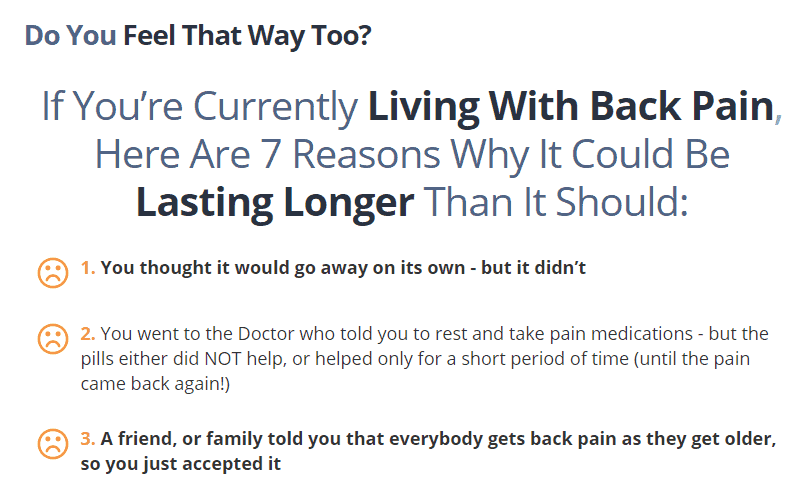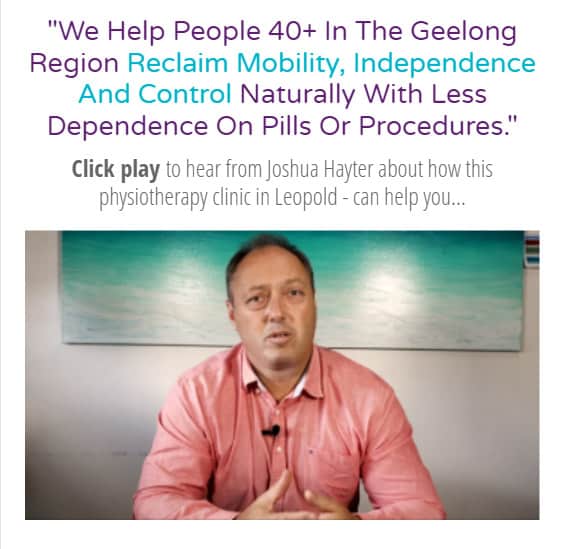
How do you build professional trust through a webpage? I’m going to mention Google Analytics, “bounce rate” and “average session duration” but I’m deliberately going to avoid mentioning any specific numbers or even any ballpark figures.
Sure, you can infer lots of things from your website traffic data but your numbers are YOUR numbers and they may well be very different to your neighbour’s numbers. All you need to know is that our goal is to reduce your “bounce rate” and increase your “average session duration” (the average amount of time people spend on your website).
You might wonder why we would want to increase the amount of time your visitors are spending on your website – surely if they can find what they need quickly then that’s a good thing, right? Well, I’m not advocating forcing people to stay on your website longer than they need to – that would most definitely frustrate your visitors and would probably ensure that they never visit your website again! What I’m talking about is ensuring that they don’t leave too quickly… that is, before they’ve gotten to know you and your business enough that they can start to trust you.
Win Trust: Finding Information vs Finding Empathy
The temptation for a lot of PTs is to pack their websites with tons of in-depth information about the conditions they treat (possibly even including a library of diagnosis and prognosis data) and the services they offer and you might think that more information means people will read more and therefore be more knowledgeable about their condition and the treatment they need but of course this simply isn’t the case… too much technical information confuses people and repels them.
What they are really looking for is empathy – someone who understands their condition or injury AND how it is making them feel. If the text content of your website isn’t exuding empathy then you need to make some changes right away, because people will spend more time reading content that makes them feel like someone cares for them than they ever will reading technical information that they have difficulty understanding.
Build Trust: Format Your Text Kindly
Any steps you take to make your text easier to read will be greatly appreciated by your visitors. No matter how good your content, some people will never read every word of it (or if they do, they will read it in fragments and not necessarily in the order you intended) – most people skim read first to try and figure out whether there’s anything that deserves their full attention.
To appease that mannerism, provide clear headings and subheadings, use bullet lists, boxes, dividers, icons, highlighted text, bold, italic and anything else (within reason) to make your written content easy to scan and easy to digest. Check the length of paragraphs and see how they look on a mobile phone – does your content look utterly boring and never-ending, or does it look interesting and easy to read? Is it easy for people to find a specific paragraph again a few minutes later, or is it lost in a sea of text that all looks the same?

Increase Trust: Video, Video, Video!
If you still don’t have a video on your home page, why not? And if you do, is it above the fold? (at least partially visible without your visitors needing to scroll). Remember that the majority of your website visitors will be on a mobile device so be sure to check that your intro video is visible above the fold and appropriately sized.
I’ve seen instances where videos appear tiny on a mobile device and I’ve seen videos that almost fill the entire page on a desktop computer – neither of these scenarios are favorable! When you’ve gone to the trouble of shooting a video and getting it onto your website you really need to ensure that it’s effortless for people to watch.

Using video is a great way to increase the amount of time people spend on your site AND they are getting to know you at the same time – they can see you and hear you and the longer they hear you and see you the more they will feel they know you and trust you. Make sure your face is visible in the still image before the video is played – using a logo or photo of your clinic will discourage people from watching because they will often assume the video is some kind of corporate advertisement rather than a personal message.
Things brings us back to empathy again – your visitors are looking for proof that you understand them and have empathy for them so they are way more likely to watch a video if they can see that they’re going to be watching another human being talking directly to them.
Consider adding videos to other pages of your website. Think about your visitors and what they’re feeling while they’re looking at your website. What are their frustrations, fears, obstacles? What do they want to hear from you? (Hint: they would appreciate some empathy and they’re most likely looking for certainty that you can help them so how can you convey that to them?)
If you already have a video on your home page, is it time to shoot a new one? Could you improve on the current one? Has your USP evolved? Perhaps your understanding of your perfect patient has improved and you could talk to them better now?
Solid Trust: Navigation
If your website isn’t easy to navigate then your visitors will be frustrated at the very least but probably they will leave your site rather quickly, without getting to know you, which is exactly what we want to avoid.
Make your main menu self-explanatory and be sure to check that it works on mobile devices. Less is more when it comes to menus. It’s well worth spending time simplifying them or restructuring them to make it as simple as possible for your visitors to get to the key pages of your website.
Bloated menus confuse and frustrate visitors so consider moving less important menu items into the footer of the website and pay very close attention to the user experience on mobile devices. You might have amazing content, but if people can’t navigate to it then it might as well not exist!
Summary
Increasing session duration and decreasing bounce rate is not about vanity or ego, it’s about increasing people’s trust in you so that you can truly help them. The longer people spend on your website reading your content, watching your videos and experiencing your empathy the more they will trust you. The more they trust you, the easier it will be for you to help them.
Also, a likely bonus to increasing session duration and decreasing bounce rate is a boost to your organic Google ranking because these numbers tell Google that people are finding good quality content on your site and staying a while to enjoy it.
Enjoy this content? Check out our other blogs for insights into other topics.
This article was originally published in Paul Gough’s Cash is King Newsletter in July 2019







